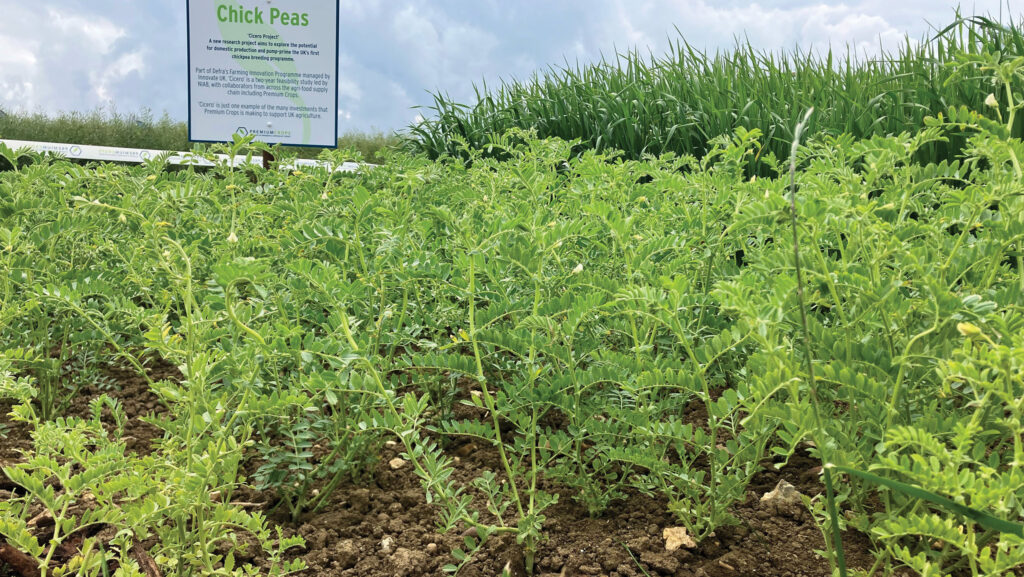Cereals 2024: Novel project seeks to find UK chickpea variety
 © MAG/Emma Gillbard
© MAG/Emma Gillbard A new research project aims to explore the potential for domestic production of chickpeas by developing the UK’s first breeding programme.
The Cicero project is a two-year feasibility study led by crop science organisation Niab, with collaborators from across the agri-food supply chain including niche crop specialist Premium Crops.
Premium Crops agronomist Fraser Hill says chickpeas (Cicer arietinum) are a familiar part of our food industry but are rarely grown in the UK because of the lack of suitable varieties and limited agronomy knowledge.
“About 60,000 tonnes of chickpeas are imported into the UK each year,” he says. “This project will explore the possibility of displacing imported chickpeas and growing more home-grown protein.”
See also: Opportunity for farmers to supply UK’s largest quinoa firm
Consistent variety
Research will focus on the cool-season chickpea. Like other nitrogen-fixing legumes, chickpeas are a low-input crop and have the potential to reduce on-farm fertiliser requirements within the rotation.
The project lead, Niab head of breeding Dr Phil Howell, says: “While chickpeas can be grown in the UK, its yields and quality are unreliable because current varieties are not well-adapted. Ultimately, we need better varieties bred specifically for UK conditions, but we also need to improve our agronomy know-how to get the most out of varieties.”
Variety trials and agronomy testing will be carried out by Niab and Premium Crops and will range from small plots to field-scale evaluation.
End-use quality assessments will be undertaken by Norfolk-based grower Place UK, which has successfully grown chickpeas in the UK to sell through its vertically integrated food ingredients business.
Phil says: “While the two-year project timescale prohibits a full breeding cycle, new populations will be advanced rapidly through the glasshouse, with selections ready for their first field evaluation by spring 2025.”
Niab has already assembled a diverse collection of existing material, which will be evaluated in field nurseries.
This will be complemented by a unique population of novel induced variants developed together with biotechnology start-up Viridian Seeds.
“These new sources of diversity will all feed into a second cycle of new crosses to kickstart the development of UK-adapted material,” Phil says.
Cicero was awarded funding by Defra under the Farming Futures R&D Fund’s sustainable farm-based protein competition, part of Defra’s Farming Innovation Programme managed by Innovate UK.

